
Nigerians queue up at a polling station to cast their votes
Leaders, lawyers, activists, and other stakeholders in the country have demanded a constitutional amendment that precludes the executive arm of the government (president) from controlling the judiciary and the Independent National Electoral Commission (INEC) for free, fair, and dependable elections in 2027.
Accusing the judiciary of selling judgments to the highest bidder and the INEC of declaring phony results, they also called for a far-reaching restructuring of both the judiciary and INEC. However, some stakeholders absolved the judiciary and INEC, saying the political class is the reason there are no reliable elections in the country.
Remove the judiciary and INEC from the executive arm’s control, says Alaowei, an activist
Chairman of the Board of Trustees of the Centre for Human Rights and Anti-Corruption Crusade (CHURAC), Mr. Cleric Alaowei, who spoke to Saturday Vanguard in Warri, Delta State, stated: “The clamor for free and fair elections in the country requires institutional reformation. To free the judiciary and INEC from executive arm control, a constitutional amendment is required. Judges should not be chosen by the executive arm and sworn into office.
The same measure should apply to the INEC. It is necessary to elect the chairman and each of the resident electoral commissioners (RECs) to their respective positions. It is the National Judicial Council’s (NJC) responsibility to choose judges. The executive branch should not be allowed to remove a sitting judge from office under the Constitution. Such authority ought to be granted to the NJC. The judiciary and INEC ought to have complete financial autonomy. There are numerous drafting errors in the Electoral Act of 2022. The Court of Appeal had held that some of these provisions violate the Constitution. A comprehensive amendment to the act is necessary to address those issues. Without the enabling laws being changed to address the issues found in the current legislation, it is impossible to discuss free, fair, and credible elections in 2027,” Alaowei argued.
Without radical reform, 2027 elections will not just be flawed, they will be a farce —Adewale
Hon. Stephen Adewale, an Activist and former Ondo state chairman of SDP, said “After the 2023 elections, the hopes of millions were crushed, not just by INEC’s embarrassing failure to uphold the integrity of the electoral process, but by the judiciary’s shocking inability or unwillingness to deliver justice in the face of overwhelming irregularities.
Despite repeated assurances, INEC could not even guarantee the simple task of real-time result transmission through the IReV portal. That failure alone cast a long, dark shadow over the entire election. But what followed was even more troubling. Courts dismissing serious petitions not based on the strength of evidence but on legal technicalities that insult the intelligence of ordinary Nigerians.
The presidential election tribunal, once a beacon of last resort, now serves as a cautionary tale of how justice can be delayed, denied, and ultimately derailed.
We can’t expect a credible election in 2027 under this broken system unless we tear down and rebuild. INEC must be rescued from the jaws of political control.
Its leadership selection process must be transparent and merit-based. Every official who betrays the trust of the people must be prosecuted, not protected. The judiciary must return to its sacred duty of justice. Judges should no longer serve as silent accomplices in the erosion of democracy. They must be courageous, impartial, and above political manipulation. Without radical reform, the 2027 elections will not just be flawed, they will be a farce. And if the people lose total faith in the ballot and the bench, what remains of our democracy will collapse under the weight of electoral corruption.
Judges are the problem of Nigeria—Akene, a development consultant
Surveyor Furoebi Akene, development consultant and chairman of the Centre for Environmental Preservation and Development (CEPAD), Bayelsa State, said, “There cannot be justice with the present judicial officers in the judiciary. The judges are the major problem. When the courts are impartial and resolute, the abuse of offices with impunity will stop, and oppression will be history.
There cannot be free, fair, and credible elections without critical reforms in the INEC that should be executed empirically. Also, the partial and oppressive roles of the security agents should be curtailed to the extent that all of them who commit human rights violations and oppression to deny people their voting rights should be prosecuted accordingly. In summary, the INEC, the judiciary, and security agencies should be drastically overhauled,” he stated.
The judiciary and INEC need exigent reorganizations —Omare, former IYC president
Eric Omare, a lawyer and former president of the Ijaw Youth Council (IYC), said, “In respect of judicial reforms, the problem with the last election cycle was the interpretation given to provisions of the 2022 Electoral Act. Nigerians had thought that the reforms in the 2022 Electoral Act were to improve the electoral process, but implementation has become a challenge. I would suggest further amendment to outrightly address some of the weaknesses in the interpretation of the 2022 Electoral Act by the courts.
I am of the opinion that there is an urgent need for reforms in INEC and also judicial reforms. There is also the need to look critically at the background of people being appointed into INEC as chairman, national commissioners, and resident electoral commissioners. Though the current law says that they must be of unquestionable character and apolitical, that provision is obeyed in breach. This is because of the faulty appointment process. I suggest that the appointment of INEC top leadership should be removed from the President and be performed by a neutral body, as the Uwais Committee suggested.
Morris, an activist, insists on judicial reform
Comrade Alagoa Morris, ex-scribe of the Civil Liberties Organisation (CLO), Bayelsa State, asserted, “Looking back and recalling the statement, ‘The judiciary is the last hope of the common man,’ and also juxtaposing what our society is currently experiencing with what some of us read in school about ‘The incorruptible Judge,’ there is a sharp and very worrisome contrast. It appears justice goes for the highest bidder and is grossly politicized. Politicians and moneybags smear the judiciary even in communal cases in court.
The appalling situation calls for reform if we are to restore the fast-eroding public confidence in the judiciary. Sadly, everyone who wins a case in court would say justice has been served by reciting the statement, ‘The judiciary is the last hope for the common man,’ whether they got it via corruption or not.”
The judiciary and INEC need a comprehensive reform—Adima, an activist
A political activist, Mr. Blessing Adima, who spoke to Saturday Vanguard in Delta State, said, “Talking about judicial reform, it is very necessary, but how do we start the reform? What kind of reform do we require in the judiciary, because the president appoints the chief judge? The judiciary needs total overhauling, not just reform, but the major concentration now should be on the INEC because if we can reform the electoral body, it will go a long way to save a lot in 2027. As for the judiciary, we need a whole lot of time to overhaul it so that the common man can have confidence in the courts again. Look at Nigeria today; technicality is the hallmark of all issues. Nobody follows the law as it is supposed to be, and you see judges bringing up technicalities. For a credible election, the first step for a better nation in all election cycles is to carry out a holistic reform of the INEC.
The reform should decentralize the INEC so that the resident electoral commissioners can declare the result of the presidential election in their respective states. Results should not be lumped together in one place, and later, they declare results different from earlier outcomes. There is a need to reform the electoral umpire, and we need to strengthen the law from where it was in 2023. For now, let us concentrate on INEC; if we can get it to an extent and the people are serious, the judiciary will have less work to do, and if it has less work to do, it will reform itself.”
Two time Minister of Education and Health, respectively, Professor Ihechukwu Madubuike, had doubts if the outcome of the 2027 polls would be credible without complete overhaul of the electoral umpire, and the judiciary. He regretted that the antecedents of both bodies had made them lose public confidence, expressing fears that the 2027 elections might be marred by voter apathy. He said: “We are not sure Nigeria can organise a credible election in 2027 without overhaul of INEC and the judiciary.
“This is because since the last election, no attempt has been made to address the issues of confidence and trust. There is a trust gap in how we manage and run our elections. Nobody is sure of anything, and nobody is challenging that process. And until we challenge that process and fill those gaps, we are going to have a repeat performance in 2027.
“There is going to be an apathy because people will say, ‘whatever we do, the result is already written.’ Both the electoral umpire and the electoral vehicle need to be seriously interrogated, reformed or totally overhauled.”
Mr. Joe Ajaero, the president of the Nigeria Labour Congress (NLC), said the real challenge is not INEC and judicial reforms but the government and the political class that undermine the rule of law. Speaking at the 2025 NLC Rain School in Uyo, Akwa Ibom State, the labor leader stated: “How can you hold the government and state actors to account when the rule of law is heavily compromised? How can you hold them to account when the principles of separation of powers in a democracy are consciously undermined? When the legislature becomes an extension of the executive and the judiciary speaks the voice of the executive, democracy is kept in abeyance and becomes dysfunctional to the detriment of checks and balances and national progress.
“We must organize, mobilize, and build workers’ political power and use it to participate and expand the democratic space. As the 2027 elections draw closer, politicians are already scheming, not to serve, but to grab power. We cannot afford to be spectators. We must rethink our political engagement. Labor must build its power, not just to endorse candidates, but to influence and dictate pro-worker policies.”
Blame politicians, not the judiciary— Ambakederimo, S-South front-runner
Elder Joseph Ambakederimo, the convener of the South-South Reawakening Group (SSRG), said, “The politicians that have refused to conduct themselves in a manner that will not be questioned are the challenge we have. We cannot continue to pass the responsibility of conducting elections and declaring candidates winners to the judiciary instead of the statutory body empowered to carry out its assigned function. So, the buck stops at the table of the politicians who have not learned to conduct themselves within the ambit of the electoral laws.
I do not believe in carrying out electoral reforms every time we have elections. What we have today is enough to provide an acceptable outcome if all play by the rules. We have near-foolproof electoral laws. However, the operators are the problem, not the electoral laws.
Therefore, we must look inward and divorce our minds from this attitude of cutting corners and manipulation of the system.”
No respect for the rule of law, says Gbemre, an activist
Zik Gbemre, the coordinator of the Niger Delta Peace Coalition (NDPC), said, “Most times, we mistake the uncontrolled abuse of power for inadequacy of the law. It is not about carrying out reforms in INEC and judiciary. While there is always room for reforms, are we enforcing the extant law we have to the letter? The legislature and judiciary pander to the whims and caprices of the president in power, and there is no respect for the rule of law. People openly engage in election rigging through vote buying, rewriting of results by the INEC officials, disruptive violence during elections, and miscarriage of justice by the bar and the bench over election petition trials in tribunals.
The extant law provides sanctions for anyone found guilty of these misconducts during elections. But how many people get punished? Instead, the judiciary sells judgments on election matters to the highest bidder. Until people get punished for compromising the electoral process, we still have a long way to go in sanitizing the system. People must be punished to deter others; otherwise, change all the laws, and it still won’t change anything.”
All electoral disputes must be concluded before inauguration of winners —Jakpor
The Executive Director of Renevlyn Development Initiative (RDI), Com. Philip Jakpor said: “The desire of Nigerians for an electoral system that will produce credible candidates relies largely on judicial reforms and tweaking of our electoral systems as presently obtains.
In fact, these are indispensable if Nigeria must ensure the integrity of the electoral processes in the lead up to the 2027 General Elections.
“One of our proposals is that all matters brought before an election tribunal against any candidate and appeals that arise must be determined and concluded within a period of 90 days before inauguration or swearing in of the candidate.”
Conducting all elections same day will minimize opportunities for manipulation — Inyali
For Dr. Peter Inyali, a public affairs analyst and University don, “reforms in both INEC and the judiciary are necessary in order to strengthen public confidence in judiciary and ensure credible elections in 2027. One critical reform is resolving election petitions before the swearing-in of winners. This would prevent incumbents from leveraging undue advantages during legal disputes, ensuring a level playing field.
Also, empowering INEC to conduct all elections on the same day could streamline the process, reduce logistical errors, and minimize opportunities for manipulation. Amending the Electoral Act to mandate electronic transmission of results is another vital step. Real-time, transparent result transmission would enhance accountability and reduce allegations of tampering, as seen in past elections. Rather than losing hope, Nigerians should advocate for evidence-based judicial processes and push for these practical reforms to strengthen democracy”.
Many judiciary, INEC staff are compromised — Ex NDE boss, Chuku Wachuku
Similarly, a former Director General of the National Directorate of Employment, NDE, Chief Chuku Wachuku, said both INEC and judiciary had been so compromised that they need urgent reforms. According to the Development Economist, some INEC personnel and judiciary officers need to be weeded out to purge the bodies of bad eggs.
He said: “We should reform the judiciary, we should reform the INEC – throw away most of the people there because they’ve been so compromised. We should also be educating the public on how to defend their votes.”
According to Hon Kennedy Peretei, former Publicity Secretary of the PDP in Ondo state, “INEC and the Judiciary are two key institutions that should have ordinarily helped to strengthen our democracy. But regrettably, in recent years they have acted as though they are an extension of the ruling party.
These institutions have been unable to insulate themselves from the general rot that has afflicted all our institutions, be it education or infrastructural. Hence, for 2027 to have a semblance of elections, INEC must be truly independent and the Judiciary the last hope of the common. These can be achieved through meaningful reforms that can deepen our democratic process.
On his part, Professor Olugbenga Oke, Director of Quality Assurance; and Former Dean – Faculty of law, Adekunle Ajasin University, Akungba- Akoko, Ondo state said, “Nigerians get the type of courts that they deserve. Where are the judges from? Are they not from Nigerian society? Are we going to import angels from heaven? How do we appoint judges?
“There is no doubt that we have some dependable and incorruptible judges in our bench, but the truth is that Judges are from the same dysfunctional society and homes where corrupt politicians, corrupt teachers, immoral business men and other charlatans in high places come from.
“We want the best of services yet we are not ready to rid our country of mediocrity and corrupt practices. We all have to agree to promote ethical reorientation in our society. Until then we will continue to lament poor service delivery across the sectors.”
Corrupt judicial officers embolden election riggers and their INEC accomplices —Fadaka
Hon. Ayo Fadaka, Political analyst said, “Certainly the days are far gone that you expect the Nigerian Judiciary to conform to the solid ethics of treating matters before it on the facts and evidence presented before it. Sadly, honor and integrity once associated with both the bench and bar are a thing of the past; it is now so terrible that people sarcastically refer to our Courts as a bazaar market. These days Judges strive to be members of Election Petition Panels.
This evil development has emboldened criminally minded election riggers and their accomplices in INEC to unabashedly rape democracy, even statutory laws that should govern the conduct of election are unduly put in abeyance and when you plead it in Court, the Judges either look away, rationalize it, or even ignore such pleading in their judgements. Nigeria is in trouble, honor and honesty has deserted our hallowed chambers of justice, criminality and impunity reigns. For sure, this cannot continue unabated, since the society is dynamic, devastating repercussions will one day begin to manifest and I dare say the consequences will be dire.
Ibadan-based legal practitioner, Mr. Deola Fehintola said, “Judiciary’s performance in dispensing justice with fairness and good conscience will go a long way in preserving democracy and ensuring its sustainability as 2027 General elections approach in Nigeria. Otherwise, there shall be a state of anarchy. Every eye is now on the judiciary and its performances which will go a long way in preserving the survival of democracy in Nigeria as we approach the 2027 elections.”
We all have a stake in bringing sanity to our electoral process——Ayejimi
As for Mr. Opeyemi Ayejimi, a legal practitioner, “Everybody has a stake in bringing sanity to our electoral process. We should not also forget the fact that it is how a case is presented before the court that will determine the outcome.
“In some cases, there may be what you call ‘glaring electoral fraud,’ but there may not be sufficient evidence to prove it before the judge. And it is a known fact that whenever you allege someone of any offence, the onus lies on the plaintiff to prove it beyond reasonable doubt.
“We may not rule out electoral fraud; there are still credible and incorruptible judges. I will just encourage people to always trust and repose their confidence in the judiciary because it is the last hope.”
In his own words, another legal practitioner, Mr. Taiwo Adediran contended that, “Our laws are adequate to take care of the situation in Nigeria but it’s the operators of our laws that are making them ineffective. The same situation goes for INEC. We can have successful elections in 2027 in Nigeria once all Nigerians are determined to do the right thing.
“Both the governed and government should be blamed for what is happening in Nigeria presently. Those in the judiciary are Nigerians and those in INEC are Nigerians too. The question to ask therefore is what is the value system in Nigeria? The politicians too should be blamed.”
There’s need to address inconsistencies in judicial decisions on electoral disputes — Ogunsuyi
Mr. Lanre Ogunsuyi, a public affairs analyst, said that, “To have successful elections in 2027, reforms in INEC and the judiciary are crucial. There is an urgent need to address inconsistencies in judicial decisions on electoral disputes. There must be clear guidelines and frameworks for timely electoral dispute resolution. Doing this is expected to strengthen accountability and restore public trust in the electoral process.
“There is also the need to urgently set up a committee to oversee judicial and electoral reforms to address ambiguities and loopholes that are being exploited to manipulate the electoral process by political actors. Addressing these issues will significantly ensure successful elections in 2027 and restore public trust in the electoral process and the judiciary”
President of Yoruba Council Worldwide, YCW, who is also a legal practitioner, Aare Hassan Oladotun said, “Many citizens are losing hope due to the courts’ perceived failure to deliver justice in the face of evident electoral fraud during the last elections. This situation is alarming and requires urgent attention.
“In my opinion, without significant reforms in both the INEC and the judiciary, we cannot expect successful elections in 2027. The integrity of our judiciary is crucial; it must operate independently and transparently.
“We need to advocate accountability mechanisms that ensure judges are held to high standards. This can involve establishing oversight bodies that monitor judicial decisions and provide feedback to the public. Additionally, we must push for ongoing training to keep judges informed about electoral laws and emerging legal standards, ensuring they are equipped to handle cases of electoral misconduct with the seriousness they deserve.
“We can organise forums and workshops to educate our communities about their rights and the importance of participating in the electoral process.”
Comrade Waheed Saka, convener “Dialogue 365” said, “Nigeria’s path to credible elections demands generational reform– systemic, sustained change rooted in institution-building. We cannot rely on piecemeal fixes every four years which only perpetuate instability. The core challenge is not whether courts “fail” to punish glaring fraud, but whether litigants meet the legal burden of proof – beyond reasonable doubt. Judicial intervention is bound by evidence, not public outcry.
“While deeper reforms are undeniably urgent, our current unit-based electoral structure provides a viable foundation for credible polls when properly executed.
“Politicians routinely exhibit schizophrenic relationships with the Judiciary, lavishing praise for favourable rulings and blistering attacks on unfavorable ones. This opportunism is corrosive. “Vilifying judges is not reform – it’s evasive and self-serving. Electoral reform is the constitutional mandate of the National Assembly, whose members represent diverse parties. They must prioritize amending flawed laws over denigrating courts that apply existing ones. Legislative inaction, followed by tantrums over judicial outcomes, betrays the public trust”.
Integrity of INEC, judiciary, vital for ensuring public confidence in political process—Abubakar
On his part, Isah Abubakar, the National President, Northern Youth Council of Nigeria (NYCN), said, “As Nigeria approaches the 2027 general elections, the imperative for reform in both the judiciary and electoral systems becomes increasingly urgent. The integrity of these institutions is vital for fostering democracy, ensuring the rule of law, and maintaining public confidence in the political process.
“In the light of recent electoral controversies and judicial inefficiencies, stakeholders must advocate for comprehensive reforms that address existing challenges, ultimately securing the credibility of upcoming elections. As Nigeria gears up for the 2027 general elections, reforming the judiciary and electoral systems is not just a political necessity but a moral obligation to its citizens”.
The Chairman of Benue Non-Governmental Organisations Network, BENGONET, a body of Civil Society and Non-Governmental Organisations in the state, Mr. Lazarus Mom, also called for the reform of the Judiciary and INEC, to rekindle the hope of Nigerians that the outcome of the 2027 general election will be generally acceptable. According to him, “The judiciary has not met the expectations to perform optimally.
“Therefore, as long as the judiciary does not live up to its expectations, the hope that the Nigerian people have will not be fulfilled in the upcoming 2027 election.
“It is up to the judiciary to live up to its billing as the last hope of the common man where they will not be afraid of names, where they will not be afraid of whoever is involved because there is equality before the law no matter who you are, no matter the office you occupy so far as the law is concerned.
“In its report, the Justice Uwais panel of the INEC made some far-reaching recommendations. The first recommendation was that the appointment of the Chairman of INEC should not be made by the presidency, credible Nigerians should contest for it while the citizens vote for who they think is most credible. Whoever emerges in this process is not appointed but elected so he does not owe allegiance to any particular person.
“The second recommendation is the burden of proof of election cases at the tribunal which the panel shifted on the INEC because it is the electoral umpire that conducts the election and has the data and the results that must prove its case. The third recommendation for me was that electronic voting shouldn’t be optional, it must be mandatory.
“INEC must relay results through electronic means so that at the end of the day electronic voting will not be an option it will be a must.”
In his own, the President General of the Arewa Youth Consultative Forum (AYCF), Alhaji Yerima Shettima said, “Without substantial reforms in both the Independent National Electoral Commission (INEC) and the judiciary, the likelihood of conducting free, fair, and credible elections remains bleak.
“The judiciary, often seen as the guardian of democracy, has a fundamental role in upholding the rule of law and ensuring that electoral processes are transparent and just. However, the recent elections have exposed significant deficiencies within this institution. Numerous reports of electoral malpractices, including ballot box snatching, voter intimidation, and manipulation of results, have surfaced. When citizens turned to the courts for redress, they were met with a judicial system that seemed ill-equipped or unwilling to address these issues.
“The perception that justice was not only delayed but also denied has left many Nigerians disillusioned and questioning the integrity of the judicial process.
“In the light of this crisis of confidence, Nigeria cannot be realistically expected to conduct successful elections in 2027 without comprehensive reforms in both INEC and the judiciary. “Reforming INEC is essential to restoring public confidence in the electoral process. This includes improving the transparency of the electoral process, enhancing the technology used in elections, and ensuring that all stakeholders, including political parties and civil society, are actively engaged in the electoral process.
“Furthermore, INEC must be insulated from political interference to ensure that it can operate independently and fairly. Equally important is the need for judicial reform. Timeliness in adjudicating electoral cases is crucial. Additionally, there must be mechanisms in place to hold judges accountable for their decisions, ensuring that they cannot be swayed by external pressures or corruption.” (Saturday Vanguard, but headline rejigged)



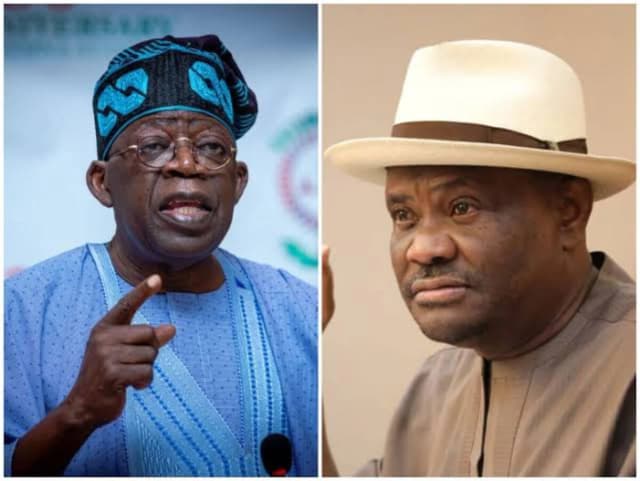
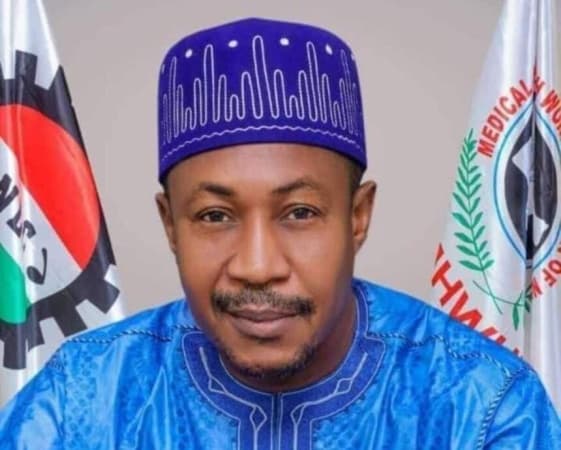
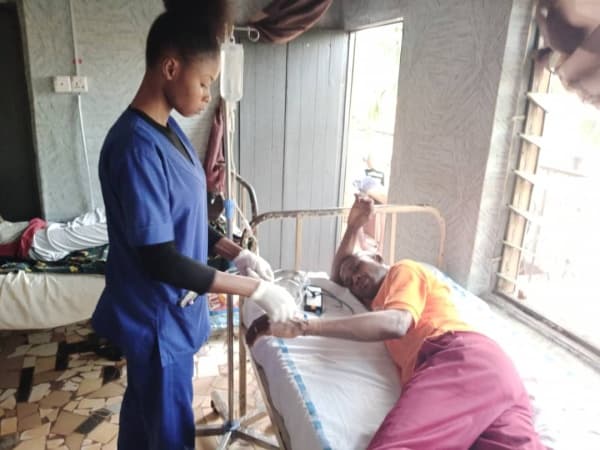


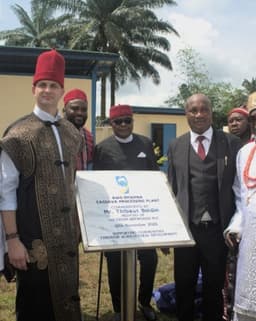
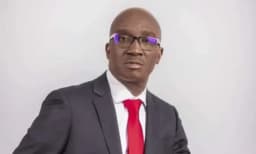





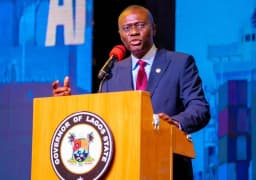





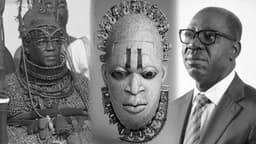
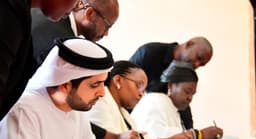




NEWS EXPRESS is Nigeria’s leading online newspaper. Published by Africa’s international award-winning journalist, Mr. Isaac Umunna, NEWS EXPRESS is Nigeria’s first truly professional online daily newspaper. It is published from Lagos, Nigeria’s economic and media hub, and has a provision for occasional special print editions. Thanks to our vast network of sources and dedicated team of professional journalists and contributors spread across Nigeria and overseas, NEWS EXPRESS has become synonymous with newsbreaks and exclusive stories from around the world.